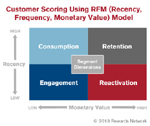Restaurateurs have long recognized the importance of customization when growing their businesses. The ability to identify each customer as an individual and meet that person’s dining preferences is one of the best ways to garner a large customer base. Today’s consumers want food prepared to suit their individual tastes. “Have it your way” is no longer a slogan for one restaurant chain. Rather, it has become a mantra for the entire fast casual industry.
The need to engage customers on a consistent and, in most cases, a daily basis, has changed the focus and approach of restaurant marketing. The use of social networks such as Facebook to build awareness and help influence an increase in the number of visits and amount spent has certainly earned the attention of restaurateurs. Owners/managers are leveraging these new channels, but those who focus solely on social media are making a mistake. Restaurateurs are quickly discovering that it takes far more than having someone “like” you on Facebook to grow a restaurant business.
The fact is that social media is just one component of an effective marketing mix. In many cases, social networks can be difficult for quantifying ROI. In spite of this limitation, their value still exists, especially when leveraged in conjunction with other tools that engage customers. One tool for customer outreach and engagement is transactional data and analysis—the modeling of customer behavior to create individualized communications with customers based on their actual consumption or spending, not just on their “likes.”
Recognize customers as individuals
The concept of individualizing the dining experience is a response to the growing demand by each customer to be recognized as unique. While mass marketing is necessary for brand awareness, its audience is broad-based and communications are somewhat generic. That is not always effective with today’s consumers who prefer—and have become accustomed to expect—a personal acknowledgement of their individual preferences. These needs have been influenced by today’s ultra-connectivity through technology, which includes social media and mobile apps.
By Megan Flynn, Rewards Network

